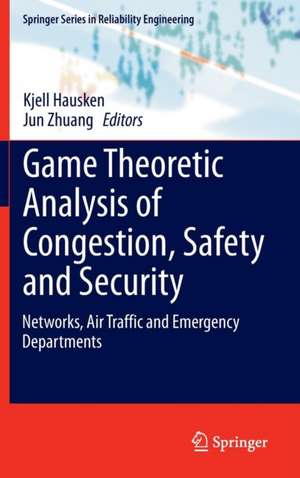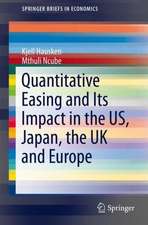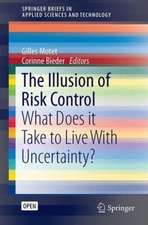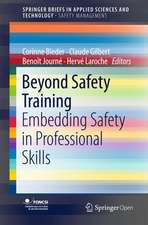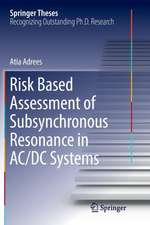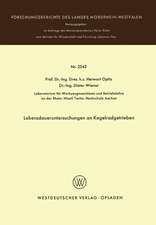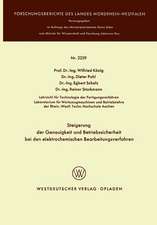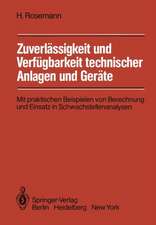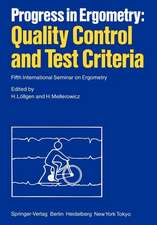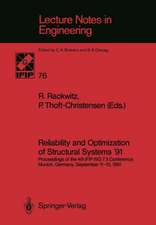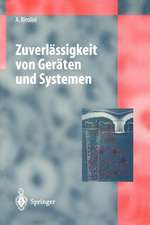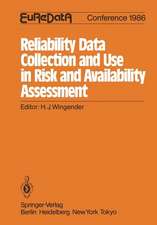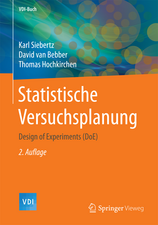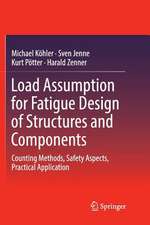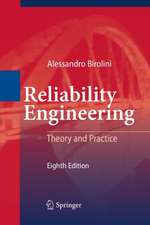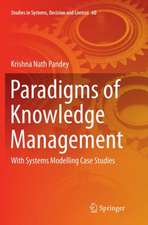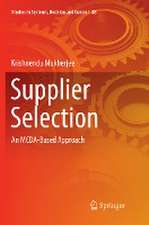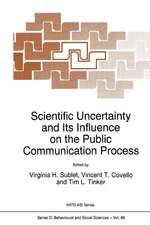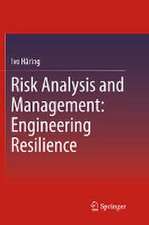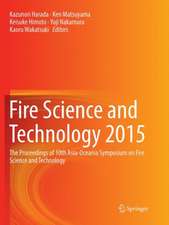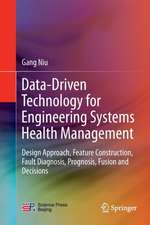Game Theoretic Analysis of Congestion, Safety and Security: Networks, Air Traffic and Emergency Departments: Springer Series in Reliability Engineering
Editat de Kjell Hausken, Jun Zhuangen Limba Engleză Hardback – 15 ian 2015
Reviewing exhaustively the key recent research into the interactions between game theory, excessive crowding, and safety and security elements, this book establishes a new research angle by illustrating linkages between the different research approaches and serves to lay the foundations for subsequent analysis.
Congestion (excessive crowding) is defined in this work as all kinds of flows; e.g., road/sea/air traffic, people, data, information, water, electricity, and organisms. Analysing systems where congestion occurs – which may be in parallel, series, interlinked, or interdependent, with flows one way or both ways – this book puts forward new congestion models, breaking new ground by introducing game theory and safety/security into proceedings.
Addressing the multiple actors who may hold different concerns regarding system reliability; e.g. one or several terrorists, a government, various local or regional government agencies, or others with stakes for or against system reliability, this book describes how governments and authorities may have the tools to handle congestion, but that these tools need to be improved whilst additionally ensuring safety and security against various threats.
This game-theoretic analysis sets this two volume book apart from the current congestion literature and ensures that the work will be of use to postgraduates, researchers, 3rd/4th-year undergraduates, policy makers, and practitioners.
| Toate formatele și edițiile | Preț | Express |
|---|---|---|
| Paperback (1) | 641.85 lei 6-8 săpt. | |
| Springer International Publishing – 24 sep 2016 | 641.85 lei 6-8 săpt. | |
| Hardback (2) | 637.89 lei 6-8 săpt. | |
| Springer International Publishing – 7 ian 2015 | 637.89 lei 6-8 săpt. | |
| Springer International Publishing – 15 ian 2015 | 648.05 lei 6-8 săpt. |
Din seria Springer Series in Reliability Engineering
- 18%
 Preț: 1406.66 lei
Preț: 1406.66 lei - 18%
 Preț: 1122.56 lei
Preț: 1122.56 lei - 20%
 Preț: 1277.89 lei
Preț: 1277.89 lei - 18%
 Preț: 952.09 lei
Preț: 952.09 lei - 24%
 Preț: 1048.70 lei
Preț: 1048.70 lei - 20%
 Preț: 940.34 lei
Preț: 940.34 lei - 20%
 Preț: 987.32 lei
Preț: 987.32 lei - 18%
 Preț: 951.29 lei
Preț: 951.29 lei - 18%
 Preț: 947.02 lei
Preț: 947.02 lei - 15%
 Preț: 651.51 lei
Preț: 651.51 lei - 15%
 Preț: 635.65 lei
Preț: 635.65 lei - 18%
 Preț: 1228.44 lei
Preț: 1228.44 lei - 18%
 Preț: 1227.67 lei
Preț: 1227.67 lei - 18%
 Preț: 952.89 lei
Preț: 952.89 lei - 18%
 Preț: 1234.94 lei
Preț: 1234.94 lei - 18%
 Preț: 952.09 lei
Preț: 952.09 lei - 18%
 Preț: 1236.19 lei
Preț: 1236.19 lei - 18%
 Preț: 1322.35 lei
Preț: 1322.35 lei - 20%
 Preț: 1274.57 lei
Preț: 1274.57 lei - 15%
 Preț: 643.34 lei
Preț: 643.34 lei - 18%
 Preț: 1109.16 lei
Preț: 1109.16 lei - 15%
 Preț: 635.65 lei
Preț: 635.65 lei - 15%
 Preț: 654.62 lei
Preț: 654.62 lei - 18%
 Preț: 944.99 lei
Preț: 944.99 lei - 18%
 Preț: 953.65 lei
Preț: 953.65 lei - 18%
 Preț: 1213.16 lei
Preț: 1213.16 lei - 18%
 Preț: 956.50 lei
Preț: 956.50 lei - 15%
 Preț: 644.95 lei
Preț: 644.95 lei - 18%
 Preț: 950.52 lei
Preț: 950.52 lei - 18%
 Preț: 1233.97 lei
Preț: 1233.97 lei - 15%
 Preț: 640.06 lei
Preț: 640.06 lei - 18%
 Preț: 956.69 lei
Preț: 956.69 lei - 18%
 Preț: 940.39 lei
Preț: 940.39 lei - 18%
 Preț: 948.92 lei
Preț: 948.92 lei -
 Preț: 389.70 lei
Preț: 389.70 lei - 18%
 Preț: 943.73 lei
Preț: 943.73 lei - 18%
 Preț: 940.57 lei
Preț: 940.57 lei - 20%
 Preț: 985.03 lei
Preț: 985.03 lei - 18%
 Preț: 943.43 lei
Preț: 943.43 lei - 18%
 Preț: 1218.21 lei
Preț: 1218.21 lei - 18%
 Preț: 948.16 lei
Preț: 948.16 lei - 18%
 Preț: 948.92 lei
Preț: 948.92 lei - 18%
 Preț: 1727.24 lei
Preț: 1727.24 lei - 15%
 Preț: 638.43 lei
Preț: 638.43 lei - 24%
 Preț: 802.76 lei
Preț: 802.76 lei
Preț: 648.05 lei
Preț vechi: 762.42 lei
-15% Nou
Puncte Express: 972
Preț estimativ în valută:
124.01€ • 132.60$ • 103.39£
124.01€ • 132.60$ • 103.39£
Carte tipărită la comandă
Livrare economică 18 aprilie-02 mai
Preluare comenzi: 021 569.72.76
Specificații
ISBN-13: 9783319130088
ISBN-10: 3319130080
Pagini: 310
Ilustrații: XIV, 310 p. 84 illus., 28 illus. in color.
Dimensiuni: 155 x 235 x 25 mm
Greutate: 0.63 kg
Ediția:2015
Editura: Springer International Publishing
Colecția Springer
Seria Springer Series in Reliability Engineering
Locul publicării:Cham, Switzerland
ISBN-10: 3319130080
Pagini: 310
Ilustrații: XIV, 310 p. 84 illus., 28 illus. in color.
Dimensiuni: 155 x 235 x 25 mm
Greutate: 0.63 kg
Ediția:2015
Editura: Springer International Publishing
Colecția Springer
Seria Springer Series in Reliability Engineering
Locul publicării:Cham, Switzerland
Public țintă
ResearchTextul de pe ultima copertă
Maximizing reader insights into the roles of intelligent agents in networks, air traffic and emergency departments, this volume focuses on congestion in systems where safety and security are at stake, devoting special attention to applying game theoretic analysis of congestion to: protocols in wired and wireless networks; power generation, air transportation and emergency department overcrowding.
Reviewing exhaustively the key recent research into the interactions between game theory, excessive crowding, and safety and security elements, this book establishes a new research angle by illustrating linkages between the different research approaches and serves to lay the foundations for subsequent analysis.
Congestion (excessive crowding) is defined in this work as all kinds of flows; e.g., road/sea/air traffic, people, data, information, water, electricity, and organisms. Analyzing systems where congestion occurs – which may be in parallel, series, interlinked, or interdependent, with flows one way or both ways – this book puts forward new congestion models, breaking new ground by introducing game theory and safety/security.
Addressing the multiple actors who may hold different concerns regarding system reliability; e.g. one or several terrorists, a government, various local or regional government agencies, or others with stakes for or against system reliability, this book describes how governments and others may have the tools to handle congestion, but that these tools need to be improved whilst additionally ensuring safety and security against various threats.
This game-theoretic analysis sets this two volume book apart from the current congestionliterature and ensures that the work will be of use to postgraduates, researchers, 3rd/4th-year undergraduates, policy makers, and practitioners.
Reviewing exhaustively the key recent research into the interactions between game theory, excessive crowding, and safety and security elements, this book establishes a new research angle by illustrating linkages between the different research approaches and serves to lay the foundations for subsequent analysis.
Congestion (excessive crowding) is defined in this work as all kinds of flows; e.g., road/sea/air traffic, people, data, information, water, electricity, and organisms. Analyzing systems where congestion occurs – which may be in parallel, series, interlinked, or interdependent, with flows one way or both ways – this book puts forward new congestion models, breaking new ground by introducing game theory and safety/security.
Addressing the multiple actors who may hold different concerns regarding system reliability; e.g. one or several terrorists, a government, various local or regional government agencies, or others with stakes for or against system reliability, this book describes how governments and others may have the tools to handle congestion, but that these tools need to be improved whilst additionally ensuring safety and security against various threats.
This game-theoretic analysis sets this two volume book apart from the current congestionliterature and ensures that the work will be of use to postgraduates, researchers, 3rd/4th-year undergraduates, policy makers, and practitioners.
Caracteristici
Introduces intelligent agents in systems where congestion plays a role, and safety and security are at stake Provides improved tools to handle congestion when additionally ensuring safety/security against various threats Considers safety or security when applying game theory to a broad definition of congestion which includes all kinds of flows; e.g. road traffic, people, data, information, water, electricity, organisms Includes supplementary material: sn.pub/extras
Cuprins
1.- Congestion Management in Motorways and Urban Networks through a Bargaining-Game-Based Coordination Mechanism 2.-Advanced Information Feedback Coupled with an Evolutionary Game in Intelligent Transportation Systems 3.-Solving a Dynamic User-Optimal Route Guidance Problem Based on Joint Strategy Fictitious Play 4.-A Psycho-Social Agent-Based Model of Driver Behavior Dynamics
Notă biografică
Kjell Hausken currently works as a Professor in the Faculty of Social Sciences, University of Stavanger, Norway and includes risk analysis, strategic interaction, game theory, societal safety, economics and philosophy amongst their current research interests.
Publishing extensively in peer reviewed publications and journal articles, Kjell also serves on the Editorial boards of ‘Defence and Peace Economics, ‘Reliability Engineering & System Safety’ and ‘Theory and Decision’.
A main PhD dissertation advisor for several students, Kjell has received many honors and awards for their work including being the recipient of the Lyse's Research Prize in 2007.
Jun Zhuang is currently an Assistant Professor in the Department of Industrial and Systems Engineering at the University at Buffalo, The State University of New York (SUNY-Buffalo), and has served as co-director at the Research Institute for Safety and Security in Transportation (RISST), SUNY-Buffalo since 2008.
With a long-term research goal to integrate operations research and game theory to better mitigate, prepare for, respond to, and recover from both natural and man-made hazards, Jun’s other areas of interest include health care, sports, transportation, supply chain management, and sustainability.
Jun received Doctor of Philosophy degree in Industrial Engineering, Minor in Mathematics from the University of Wisconsin-Madison, Madison, WI for their dissertation ‘Modeling Secrecy and Deception in Homeland Security Resource Allocation’ in 2008, and has been a fellow of the U.S. Air Force Summer Faculty Fellowship Program (AF SFFP), sponsored by the Air Force Office of Scientific Research (AFOSR), since 2011.
Honors and awards include the INFORMS, Decision Analysis Society, Student Paper Award, Honorable Mention, 2006, Intelligen’s International Process Design Contest, Second Place Award, 2006, and in 2012 the University at Buffalo President Emeritus and Mrs. Martin Meyerson Award for Distinguished Teaching and Mentoring (formerly named Faculty Award).
Publishing extensively in peer reviewed publications and journal articles, Kjell also serves on the Editorial boards of ‘Defence and Peace Economics, ‘Reliability Engineering & System Safety’ and ‘Theory and Decision’.
A main PhD dissertation advisor for several students, Kjell has received many honors and awards for their work including being the recipient of the Lyse's Research Prize in 2007.
Jun Zhuang is currently an Assistant Professor in the Department of Industrial and Systems Engineering at the University at Buffalo, The State University of New York (SUNY-Buffalo), and has served as co-director at the Research Institute for Safety and Security in Transportation (RISST), SUNY-Buffalo since 2008.
With a long-term research goal to integrate operations research and game theory to better mitigate, prepare for, respond to, and recover from both natural and man-made hazards, Jun’s other areas of interest include health care, sports, transportation, supply chain management, and sustainability.
Jun received Doctor of Philosophy degree in Industrial Engineering, Minor in Mathematics from the University of Wisconsin-Madison, Madison, WI for their dissertation ‘Modeling Secrecy and Deception in Homeland Security Resource Allocation’ in 2008, and has been a fellow of the U.S. Air Force Summer Faculty Fellowship Program (AF SFFP), sponsored by the Air Force Office of Scientific Research (AFOSR), since 2011.
Honors and awards include the INFORMS, Decision Analysis Society, Student Paper Award, Honorable Mention, 2006, Intelligen’s International Process Design Contest, Second Place Award, 2006, and in 2012 the University at Buffalo President Emeritus and Mrs. Martin Meyerson Award for Distinguished Teaching and Mentoring (formerly named Faculty Award).
